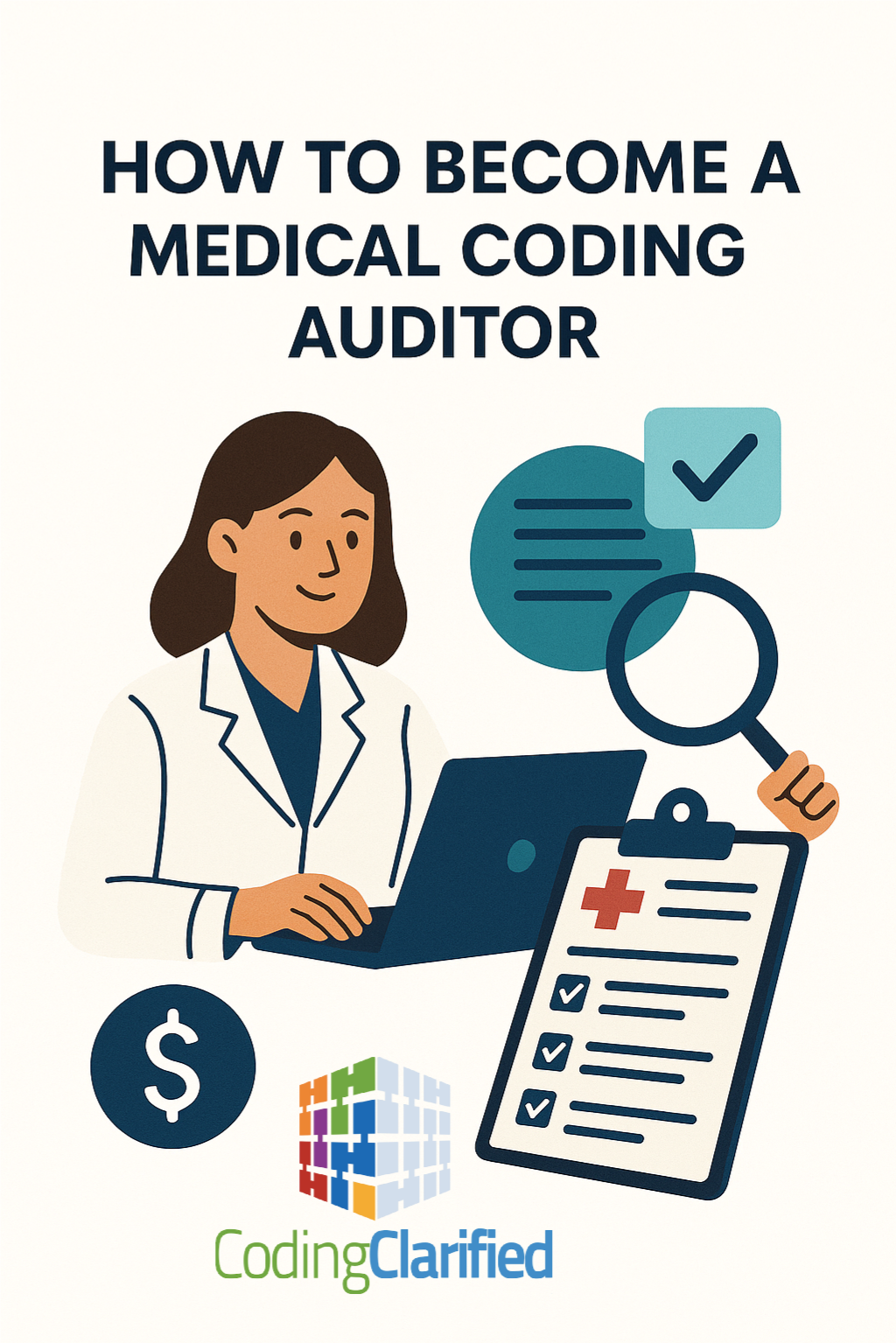How to Become a Medical Coding Auditor: A Step-by-Step Guide
Medical coding auditors play a vital role in ensuring healthcare organizations stay compliant, accurate, and efficient in their coding and billing practices. If you’re a certified coder looking to level up your career, learning how to become a medical coding auditor could be your next big move.
What Does a Medical Coding Auditor Do?
Medical coding auditors review clinical documentation and coded data to verify accuracy, compliance, and adherence to official coding guidelines. Their goal is to:
-
Identify coding errors or discrepancies
-
Prevent fraud and abuse
-
Ensure proper reimbursement
-
Support healthcare compliance programs
They often work for hospitals, physician groups, payers, consulting firms, or even independently.
Get Certified in Medical Coding
Before you can become an auditor, you’ll need solid coding credentials. Start by earning a reputable certification such as:
-
Certified Professional Coder (CPC®) from AAPC
-
Certified Coding Specialist (CCS®) from AHIMA
These credentials prove you understand ICD-10, CPT®, and HCPCS Level II coding systems.
Coding Clarified Medical Coding course includes the following:
Access to the online medical coding course using the AAPC-approved curriculum
CPT, ICD10, HCPC, Workbook & Textbook
Instructor audio/video files for each chapter to implement notes into your manuals
1:1 time with instructor as needed
Professionally written resume
AAPC Membership
CPC Exam Voucher
Job placement assistance/resources
Online HCC Internship
Free 50-Question Practice Exam
Practicode
https://codingclarified.com/mastering-online-medical-coding-training/
Gain Hands-On Coding Experience
Most employers require 2–5 years of coding experience before considering candidates for auditing roles. During this time, focus on:
-
Accuracy in coding assignments
-
Familiarity with various specialties
-
Exposure to compliance standards and payer policies
Specialize with an Auditing Credential
Once you’ve gained experience, consider a coding auditor-specific certification to stand out:
-
Certified Professional Medical Auditor (CPMA®) from AAPC
This credential demonstrates your auditing skills and understanding of risk-based auditing, documentation guidelines, and regulatory requirements.
Stay Updated on Compliance and Regulations
Auditors must stay current with:
-
OIG guidelines
-
CMS rules
-
HIPAA regulations
-
Coding updates (ICD-10, CPT changes)
Continued education and professional development are crucial to remain effective and competitive.
Apply for Medical Coding Auditor Jobs
Search for opportunities at:
-
Hospitals and healthcare systems
-
Insurance companies and payers
-
Government agencies (Medicare, Medicaid)
-
Consulting firms
Highlight your auditing certification, experience, and analytical skills in your resume and interviews.
Why Become a Medical Coding Auditor?
Higher Earning Potential
Remote Work Opportunities
Career Advancement
Critical Role in Compliance and Risk Management
Becoming a medical coding auditor is a rewarding path for coders who are detail-oriented, compliance-driven, and ready for a new challenge. By investing in the right certifications and building your auditing expertise, you’ll be positioned for long-term career success.
AAPC Medical Auditor https://www.aapc.com/certifications/cpma
Coding Clarified Auditing https://codingclarified.com/auditing/

